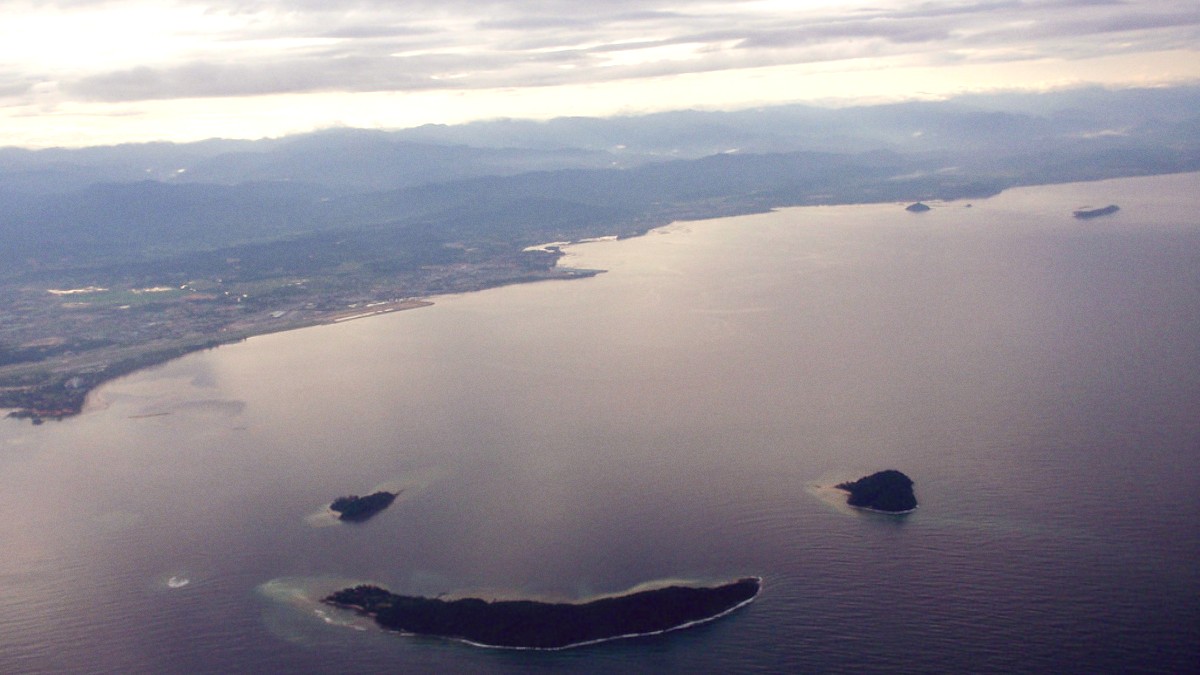
Malaysian Borneo Sabah, Malaysia
This tropical rainforest climate features consistently high temperatures, high humidity, and regular rainfall throughout the year.
Expect daily temperatures between 27°C and 32°C (81°F to 90°F). Nighttime temperatures rarely drop below 22°C (72°F). The heat can feel intense due to high humidity. Dress in light, breathable clothing. Rainfall is abundant. Showers often occur as short, heavy bursts, followed by sunshine. Occasional prolonged downpours are possible.
Kota Kinabalu does not experience hurricanes. However, strong winds and heavy downpours are possible during monsoon transitions or deep low-pressure systems.
These conditions bring localized flooding in low-lying areas or disruption of ferry services to the islands. Always check local weather forecasts, especially if planning boat trips.
More crowds, higher prices
Generally sunnier weather, clear skies for diving, snorkeling, island excursions. Mount Kinabalu climbing more comfortable.
Higher prices for accommodation and flights. More visitors at attractions. Book tours and lodging early.
Fewer crowds, weather transitions
Fewer crowds, potentially lower accommodation prices. Good weather still, some rain. Mount Kinabalu climbing conditions generally good.
Weather transitions, so some days may be rainier. Ocean conditions might change, possibly impacting some water activities.
Lowest prices, more rain
Lowest prices for flights and accommodation. Fewer tourists, an authentic local experience. Lush landscapes. Wildlife viewing (e.g., proboscis monkeys) can be excellent.
Higher chance of rain affecting outdoor activities. Rougher seas may impact island trips, potentially leading to cancellations of boat tours.
Diving & Snorkeling: March to September presents the calmest seas and best visibility for underwater exploration.
Mount Kinabalu Climb: Plan your climb between March and August for generally clearer skies and less slippery trails. Permits are limited. Book them far in advance, often months ahead, through a licensed tour operator.
Beach & Island Hopping: March to September offers the most reliable sunny days for relaxing on beaches and exploring the Tunku Abdul Rahman Marine Park islands.
Wildlife Spotting (e.g., Klias Wetlands): Wildlife can be seen year-round. Conditions might be muddier during the wet season. Firefly sightings are often better after rain, as the air clears and moisture enhances their glow.
Best visibility: March - September.
Clearer skies: March - August (book early).
Most sunny days: March - September.
Year-round, but can be muddier wet season.
Often better after rain.
Prepare your documents well before your trip.
Many nationalities receive visa-free entry for tourism (e.g., USA, UK, Canada, Australia, NZ, most EU, ASEAN countries). Duration of stay varies (30-90 days). Confirm your specific allowance.
Have these documents ready for immigration officers.
This table provides estimated daily costs. Your actual spending may vary based on your choices and current exchange rates.
Your health and safety on your visit are important. Awareness and preparation contribute to a secure trip.
Yellow Fever vaccination certificate if arriving from or transiting through Yellow Fever endemic countries.
Consult a travel health clinic 4-6 weeks prior. Routine vaccinations, Hepatitis A & B, Typhoid, Tdap, Rabies (for high-risk activities), Japanese Encephalitis (for long-term rural stays).
Common. Prevent with Insect repellent with DEET or picaridin. Wear long sleeves and pants, especially at dawn/dusk. Consider mosquito nets.
Food and Waterborne Illnesses:
Traveler's diarrhea can occur. Drink only bottled or filtered water. Avoid ice unless made from purified water. Eat hot, freshly cooked food. Peel fruits yourself. Wash your hands frequently.
Sunburn & Heatstroke: High temperatures and humidity carry risk. Stay hydrated with plenty of fluids, wear a hat, use High SPF sunscreen, and seek shade during midday hours (10 AM - 4 PM).
Leeches: Possible during rainforest treks. Wear long socks or gaiters. Tuck pants into socks. Carry a small amount of salt or Hand sanitizer for removal.
Kota Kinabalu has modern private hospitals with English-speaking staff (e.g., Gleneagles Hospital, KPJ Sabah Specialist Hospital). Pharmacies are readily available.
Dial 999 for Police, Ambulance, or Fire. Tourist Police: 088-221 212.
Pickpocketing and bag snatching can occur, especially in crowded areas. Stay aware of belongings. No specific high-crime neighborhoods for tourists.
Sabah is in a seismically active region. Minor tremors can occur, but major earthquakes are rare. Mount Kinabalu was affected by a significant earthquake in 2015.
Travel insurance is highly recommended. Your policy should cover medical emergencies (including evacuation), trip cancellation, lost luggage, and specific activities (e.g., diving, mountaineering). Read the fine print to understand your coverage.
Travel insurance for adventurous travelers: Worldnomads.com
Insurance for digital nomads and remote teams: Safetywing.com
Medical and travel coverage for foreigners visiting the US: Insubuy.com